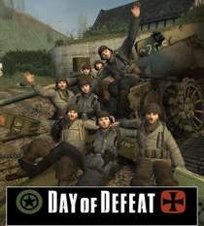Illicit IV Drugs: A Public Health Approach
As the debate on harm reduction and drug policy reform intensifies, our understanding of these eight policy options and their health, social and criminal consequences needs to be expanded and developed. The process of examination of these eight legal options for all currently illegal drugs will produce significant benefits for society, drug users and drug abusers. The desired end result is an evolution of our illegal drug laws and policies... society will not manage its “drug problem” effectively until we reach a place where addiction is viewed first and foremost through the lens of public health, and addicts and drug users are treated with dignity and respect.
Thursday, January 22, 2004
Sunday, January 18, 2004
WWII Aerial Photo Archive to Go Online
Yahoo! News article
Ah, how primative was the technology of war in the mid'20th century? Get out your magnifying glass, and figure out what we should bomb Winston.
Ah, how primative was the technology of war in the mid'20th century? Get out your magnifying glass, and figure out what we should bomb Winston.
Thursday, January 15, 2004
Heroin Assisted Treatment in Switzerland
Starting in 1994 Switzerland began trials for heroin maintenance. One of the doctors involved talks with Vancouver's Four Pillars Newsletter: A Chat with Dr. Christophe Burki
Vancouver's safer injection site is doing well after four months. Over 2000 clients registered, and upwards of 500 people using it daily. (synopsis0
Vancouver's safer injection site is doing well after four months. Over 2000 clients registered, and upwards of 500 people using it daily. (synopsis0
Wednesday, January 14, 2004
Drug Enforcement and Crime - myths and realities from NY
Drug Enforcement and Crime
However, there are also several reasons why enforcement of drug laws can lead to increased crime, including:
1) Distribution networks that are established within illegal drug markets are disrupted, leading to increases in disputes over market share and informal contractual arrangements within the illegal drug markets. This may lead to more violence, a favored dispute resolution mechanism in illegal markets (Miron 1998).
2) Disruptions in the market may also lead drug sellers to switch to other forms of economic crime that are considered substitutes, such as robbery and burglary, to obtain income when supplies are disrupted (Kuziemko and Levitt, 2001).
3) Drug users with dependencies or addictions and those who use illegal drugs to treat (diagnosed or undiagnosed) medical conditions may resort to crime as a result of pharmacological effects from physical or psychological withdrawal, or from behavioral changes resulting from ending self-treatment.
4) Intensified enforcement may drive up prices and profits for remaining suppliers, providing more incentive for potential suppliers to engage in crime or violence to obtain a share of the market and leading to more economic crime by users who need to obtain income to support a habit.[26]
5) Resources spent on drug enforcement cannot be used for investigating and making arrests for other types of crime. As a result, enforcement effectiveness for other crimes may be reduced (Rasmussen and Benson, 1994).
6) The incarceration of drug users and sellers takes up scarce prison cells. With prisons at full capacity, an increase in prisoners for drug offenses reduces imprisonment for other crimes, or results in early release of other criminals, prison overcrowding, or new prison construction. There is a cost to society because other crimes can be expected to increase due to lower rates of incarceration and because the resources used to expand prison capacity could have been used for other purposes (Kuziemko and Levitt, 2001).
Brick by brick good analysis such as this will surely dismantle the cruddy edifice of prohibitionist lunacy
However, there are also several reasons why enforcement of drug laws can lead to increased crime, including:
1) Distribution networks that are established within illegal drug markets are disrupted, leading to increases in disputes over market share and informal contractual arrangements within the illegal drug markets. This may lead to more violence, a favored dispute resolution mechanism in illegal markets (Miron 1998).
2) Disruptions in the market may also lead drug sellers to switch to other forms of economic crime that are considered substitutes, such as robbery and burglary, to obtain income when supplies are disrupted (Kuziemko and Levitt, 2001).
3) Drug users with dependencies or addictions and those who use illegal drugs to treat (diagnosed or undiagnosed) medical conditions may resort to crime as a result of pharmacological effects from physical or psychological withdrawal, or from behavioral changes resulting from ending self-treatment.
4) Intensified enforcement may drive up prices and profits for remaining suppliers, providing more incentive for potential suppliers to engage in crime or violence to obtain a share of the market and leading to more economic crime by users who need to obtain income to support a habit.[26]
5) Resources spent on drug enforcement cannot be used for investigating and making arrests for other types of crime. As a result, enforcement effectiveness for other crimes may be reduced (Rasmussen and Benson, 1994).
6) The incarceration of drug users and sellers takes up scarce prison cells. With prisons at full capacity, an increase in prisoners for drug offenses reduces imprisonment for other crimes, or results in early release of other criminals, prison overcrowding, or new prison construction. There is a cost to society because other crimes can be expected to increase due to lower rates of incarceration and because the resources used to expand prison capacity could have been used for other purposes (Kuziemko and Levitt, 2001).
Brick by brick good analysis such as this will surely dismantle the cruddy edifice of prohibitionist lunacy
Subscribe to:
Comments (Atom)



